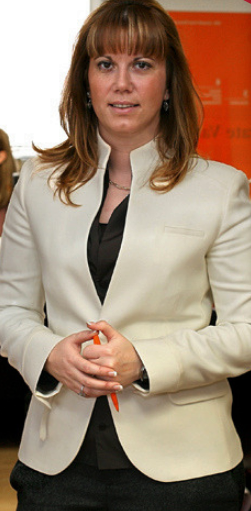Ordo ab Chao: How to Find Order in a World of Chaos with
Dr. Nicolas Kfuri

How are today’s crises, such as the COVID-19 pandemic, rapid technological and climate changes affecting your business and organization? These are some of the questions tackled by Dr. Nicolas Kfuri, a global expert executive trainer, professor, and consultant whose areas of expertise are Corporate Global Strategy, Marketing and Branding, and Internationalization Processes.
Dr. Kfuri pointed out that order has its roots in political, economic and religious systems, meaning that the process of “getting things in order” is different from country to country and from organization to organization. Since the society keeps changing now faster than ever before, we run into what is called a knowledge paradox. Dr. Krufi emphasized that although our knowledge is increasing at breakneck speed, we are less able to make sense of the present or forecast the future.
All of these changes affect the organizations as it is harder to keep their customers satisfied. Dr. Kfuri labeled the new level of uncertainty as a time when we are going from “not knowing the means” to “not knowing the ends”.
Today, authorities are controlled by algorithms and that will affect the future of marketing, because at some point in the future our personal assistance will have the knowledge of our preference of products and services. Studies suggest that through your Facebook likes the software generates an algorithm that knows you better than your loved ones do. That implies that in today’s world the most important asset is data.
“It seems that everything started in 2007” recalled Dr. Kfuri, listing a few completely new products and innovations, such as: The first iPhone, Facebook, Twitter, Airbnb, IBM’s Watson, Intel’s non silicon material, even renewable energy and DNA sequencing. The technology is evolving faster than ever before.
Furthermore, Dr. Kfuri discussed Artificial Intelligence (AI) and its advantage compared to human intelligence, being its “updatability” and “connectivity” since humans need to rest, eat and have problems as the current pandemic risks. As a result from all of this the gap between human adaptability and technological progress is becoming bigger.
Moving on to globalization, Dr. Kfuri believes that if some 25 years ago globalization led us to “how to make things cheaper” in the next 25 years it will lead us to “how to make things smarter”. In addition he mentioned pandemic risks are going to occur more frequently as the world becomes more open, transport and logistics more efficient and epidemics spill more easily from one country to another.
What should you do as a leader/organization?
Providing stability vs. being static. In a fast pace changing world, managers need to provide a stable nomadic culture in the organization empowered by people who will embrace new challenges, skills and ideas constantly. In that manner leaders should embrace and motivate imagination and creativity. In this fluid world where everything is constantly changing it doesn’t truly matter where you are located and where you people working are located. Today we need people that can make fast decisions anytime, anywhere. That is way now more than ever we need to fight the so called “settlers” and motivate a culture of people that are willing to take new challenges, learn new skills and adapt quickly.
As a way to inspire others, Dr. Kfuri mentioned storytelling, as it inspires people in a way that the managers/leaders can and should do, by playing a positive role in the organization, but also among the customers.
Dr. Kfuri also pointed out that leading through the heart (or heartfulness) is the most important capability now, in a time when physical and cognitive abilities in humans are being replaced by machines and computers. Because of that, leaders need to connect with people and create a learning environment.
The main conclusions of this masterclass:
- In today’s world the most important asset is data.
- The technology is evolving faster than ever before.
- The gap between human adaptability and technological progress is becoming bigger.
- 25 years ago globalization led us to “how to make things cheaper” in the next 25 years it will lead us to “how to make things smarter”.
- Managers need to foster a nomadic culture in the organization empowered by people who will embrace new challenges, skills and ideas constantly.
- Leaders should embrace and motivate imagination and creativity.
Hiring and leading the “hearts” is essential: accessing and developing human capabilities that cannot be programmed in software, is what distinguishes, beyond technology, a successful organization from the rest.































Wow this article very informative, do you have social media for share this article